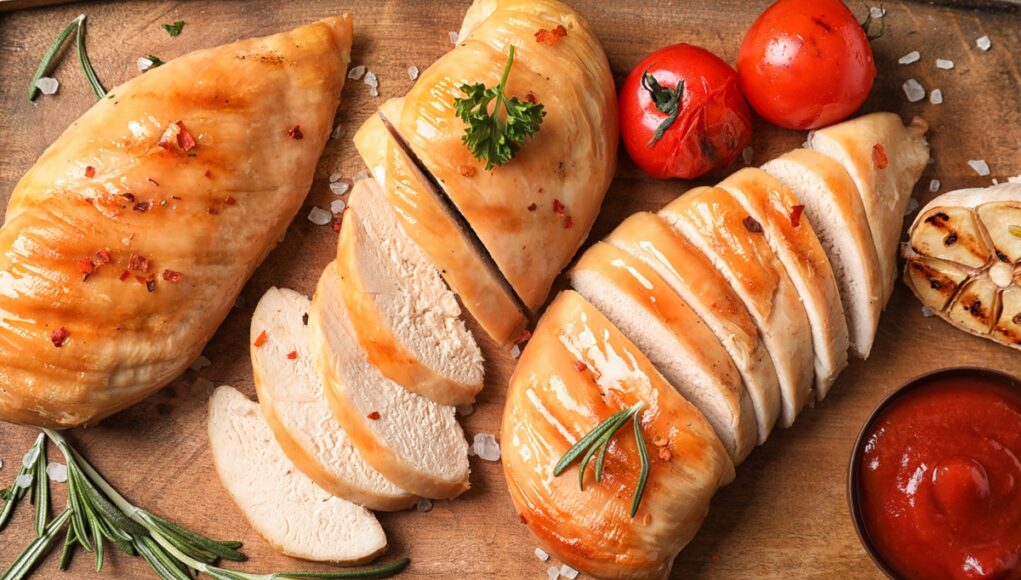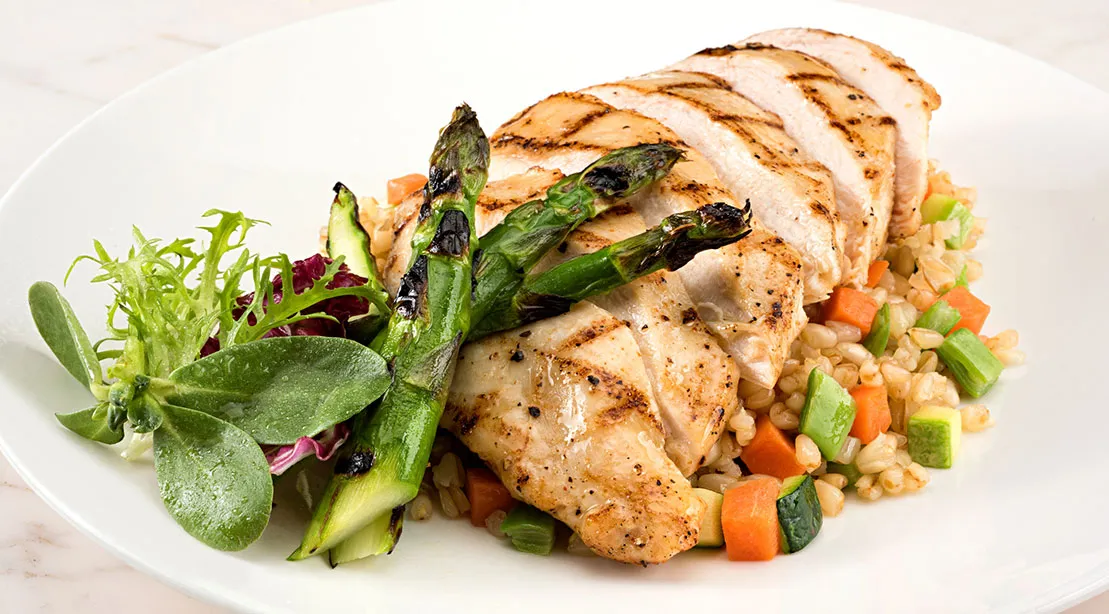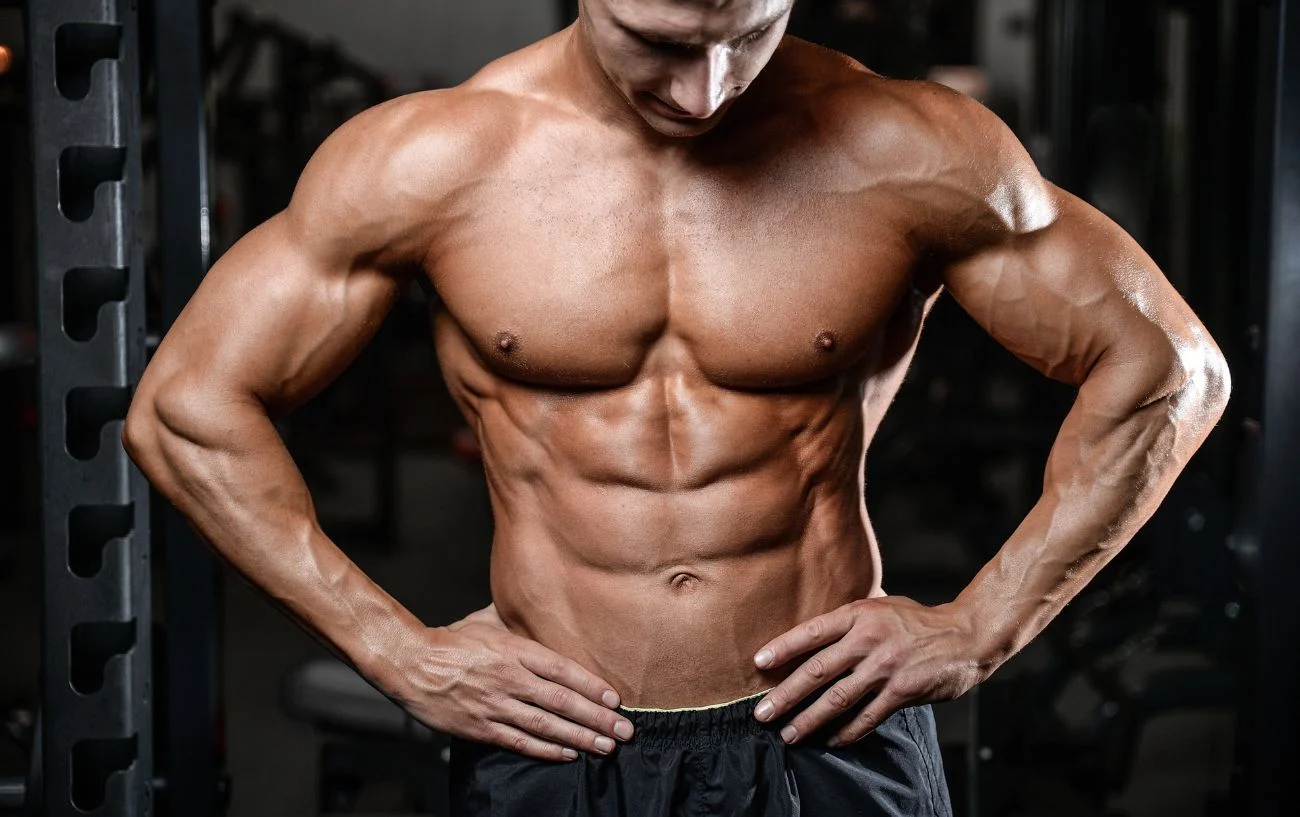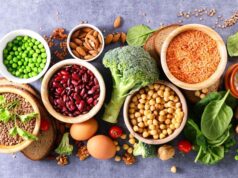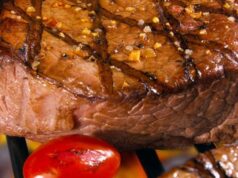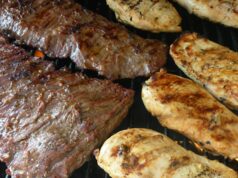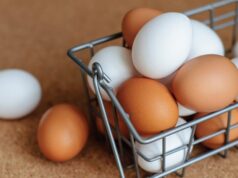Why Do Bodybuilders Eat So Much Chicken Breasts?
Chicken breast is a staple in the diet of bodybuilders and fitness enthusiasts around the world. It’s often viewed as the go-to protein source for muscle building, recovery, and overall health.
But what makes chicken breast so popular among bodybuilders? In this article, we’ll explore the nutritional value of chicken breast, whether eating two chicken breasts a day provides enough protein, its role in bulking and cutting, and potential drawbacks, including concerns about gynecomastia and other disadvantages.
Nutritional Facts of Chicken Breast
Chicken breast is one of the most nutrient-dense and protein-rich foods available. It provides a high amount of protein with minimal fat, making it an excellent choice for bodybuilders who need to support muscle growth while controlling calorie intake.
A 100-gram (3.5-ounce) serving of skinless, boneless chicken breast contains approximately:
- Calories: 165 kcal
- Protein: 31g
- Fat: 3.6g
- Carbohydrates: 0g
- Cholesterol: 85mg
- Sodium: 74mg
Key Nutrients in Chicken Breast:
- High-Quality Protein: Chicken breast provides all nine essential amino acids, making it a complete protein source that supports muscle repair and growth.
- B Vitamins (B6, B12, and Niacin): These help in energy metabolism, red blood cell production, and maintaining a healthy nervous system.
- Selenium and Phosphorus: These trace minerals support immune function and bone health.
- Low Fat Content: With minimal saturated fat, chicken breast is a lean protein source ideal for cutting and bulking phases.
Is 2 Chicken Breasts a Day Enough Protein?
The protein needs of a bodybuilder depend on body weight, activity level, and fitness goals. The recommended daily protein intake for muscle growth is generally 1.6 to 2.2 grams per kilogram of body weight (or 0.7 to 1.0 grams per pound).
A single chicken breast (150-180g) typically contains 40-50g of protein. Eating two chicken breasts a day provides approximately 80-100g of protein, which may or may not be sufficient depending on an individual’s total protein needs.
Protein Needs Based on Body Weight:
- 150 lbs (68 kg): Needs 109-150g protein/day → 2 chicken breasts cover 50-70% of daily needs.
- 180 lbs (82 kg): Needs 131-180g protein/day → 2 chicken breasts cover 45-60% of daily needs.
- 210 lbs (95 kg): Needs 152-210g protein/day → 2 chicken breasts cover 38-52% of daily needs.
While 2 chicken breasts per day can contribute significantly to protein intake, most bodybuilders supplement their diets with eggs, fish, beef, dairy, or protein shakes to meet their total protein requirements.
Is Chicken Breast Good for Bulking or Cutting?
The Chicken breast is an excellent food choice for both bulking and cutting, depending on how it is prepared and consumed.
Chicken Breast for Bulking
- High Protein: Supports muscle growth and recovery.
- Lean but Can Be Adjusted: While naturally low in fat, pairing it with healthy fats (e.g., olive oil, avocado, nuts) can increase calorie intake for bulking.
- Versatile in Meals: Can be combined with rice, pasta, or potatoes to create high-calorie meals that support weight gain and muscle mass.
Chicken Breast for Cutting
- Low Calories & Fat: Helps maintain a caloric deficit while preserving muscle.
- Satiety Factor: High protein content reduces hunger, making it easier to stick to a calorie-restricted diet.
- Metabolism Boosting: Protein has a high thermic effect, meaning your body burns more calories digesting it.
Can Eating Chicken Breast Cause Gynecomastia?
Gynecomastia (the development of excess breast tissue in men) is commonly linked to hormonal imbalances, high estrogen levels, or anabolic steroid use.
Some people worry that consuming large amounts of chicken could contribute to hormonal disturbances due to potential hormone residues in commercial poultry.
Does Chicken Breast Contain Hormones?
In many countries, growth hormones are banned in poultry production. However, there are concerns about antibiotics and environmental estrogen-like chemicals (e.g., pesticides, plastics) that could indirectly impact hormonal balance.
Does Eating Chicken Increase Estrogen?
- There is no scientific evidence that natural chicken breast significantly increases estrogen or causes gynecomastia.
- To minimize risks, opt for organic, hormone-free, or free-range chicken to avoid potential contaminants.
What Are the Disadvantages of Eating Chicken Breast?
Despite its many benefits, consuming large amounts of chicken breast has potential downsides:
Nutrient Imbalance
- Relying too much on chicken breast for protein can result in micronutrient deficiencies, as it lacks omega-3 fatty acids, iron, and fiber.
- Solution: Include red meat, fish, eggs, and plant-based proteins for a more balanced diet.
Potential Digestive Issues
- Eating too much lean protein without enough fats or fiber can lead to digestive discomfort, bloating, or constipation.
- Solution: Pair chicken breast with vegetables, whole grains, and healthy fats to support digestion.
Risk of Overcooking & Dryness
- Chicken breast is prone to drying out when overcooked, making it less enjoyable.
- Solution: Use marinades, slow-cooking, or steaming to retain moisture and flavor.
Cost and Quality Concerns
- High-quality, organic, or free-range chicken breast can be expensive.
- Solution: Buy in bulk or incorporate cheaper protein sources like eggs, legumes, or canned tuna.
Possible Exposure to Contaminants
- Some commercially raised chicken may contain antibiotic residues, bacteria (e.g., Salmonella), or environmental toxins.
- Solution: Choose high-quality sources and cook chicken to a safe internal temperature (165°F/75°C).
Conclusion
Chicken breasts remains a staple protein source for bodybuilders due to its high protein content, low fat, and versatility.
Eating two chicken breasts per day can significantly contribute to muscle growth, but additional protein sources may be needed to meet daily requirements.
Whether you’re bulking or cutting, chicken breast provides the necessary protein and nutrients to support your fitness goals.
While concerns about gynecomastia from eating chicken breast are largely unfounded, choosing organic or hormone-free chicken can help minimize potential risks.
However, eating chicken breast exclusively may lead to nutritional imbalances, digestive issues, or high food costs.
A well-rounded diet that includes various protein sources, vegetables, and healthy fats is the best approach for muscle building and overall health.
By understanding the benefits and drawbacks, bodybuilders can make informed decisions on how to incorporate chicken breast effectively into their meal plans.

